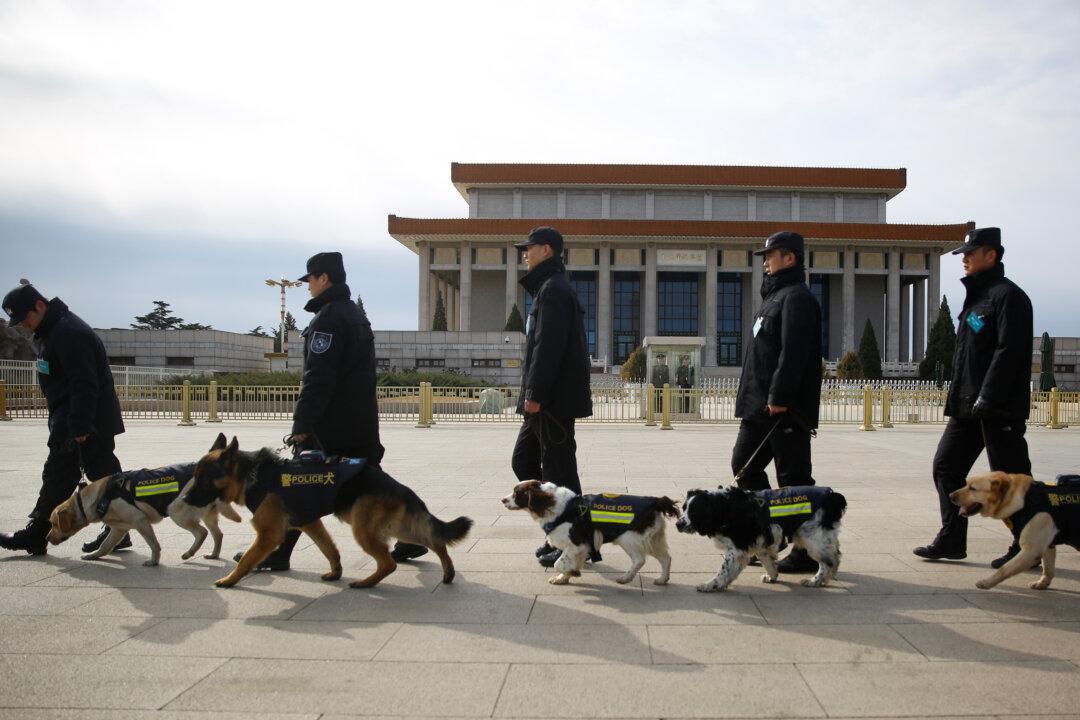BEIJING—China’s police must focus on withstanding “color revolutions,” or popular uprisings, and treat the defense of China’s political system as central to their work, the top law-enforcement official said.
China’s stability-obsessed Communist Party has long tasked the nation’s police force with stamping out any form of grassroots social or political movement.
China’s police must “stress the prevention and resistance of ‘color revolutions’ and firmly fight to protect China’s political security,” Public Security Minister Zhao Kezhi said on Jan. 17, according to a post on the ministry’s website.
“(We) must firmly defend our national security, with regime and system security at its core, and firmly defend the leadership of the Chinese Communist Party and our nation’s Socialist system,” he said.
Police must also “strike back against all kinds of infiltration and subversive activities by hostile foreign forces,” he told the ministry’s annual national meeting.
The term “color revolution” refers to popular uprisings experienced by former Soviet states, such as Ukraine, that often swept away long-established rulers.
Chinese officials have previously mentioned such uprisings as a warning to their own people about the trouble that might result from overthrowing long-standing governments.
China’s domestic security budget has not been detailed by the government in its annual work report since 2014, after the figure outstripped the military budget three years in a row.
The Chinese regime has used the excuse that Xinjiang faces a serious threat from Islamist militants and separatists who plot attacks and stir up tensions with the ethnic Han Chinese majority to crack down on the local population in Xinjiang.
In August 2018, a United Nations human rights panel said it had received many credible reports that a million or more Uyghurs in China are being held in what resembles a “massive internment camp that is shrouded in secrecy.”
Over the years, Xinjiang has been transformed into a vast security state, packed with police stations, street cameras, and security checkpoints at which electronic identity cards are scanned.
Western countries including Canada, France, Germany, and the United States have urged China to shut down camps in Xinjiang.





